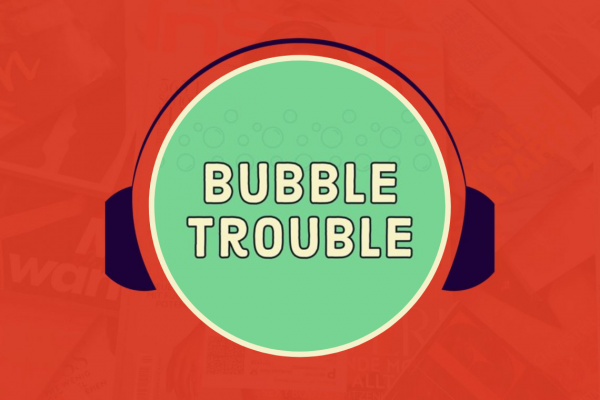“Influencers are not journalists”: James Hewes makes passionate defence of quality journalism on Bubble Trouble podcast
FIPP President and CEO James Hewes has made a powerful case for protecting quality journalism and subjecting platforms to regulation in the latest episode of the Bubble Trouble podcast.
In a “right of reply” format, Hewes explains why big tech platforms need to be treated as publishers, because they edit and curate content in a way that would subject media businesses to regulatory scrutiny.
“For some reason, all of those who do algorithm-based content recommendation manage to get themselves excluded from this. We think that’s wrong,” says Hewes emphatically. “This has been the thrust of our lobbying efforts over the past 20 years. Saying to politicians: these guys are editors, and you should treat them like editors.”
Discussing why the flattening of content and its origins is so bad for society, he points out: “Not all content is created equal, and yet it is served up on YouTube and Facebook as though it’s all of equal value.”
Putting some limits on what is allowed to be said “is not censorship, it’s called quality journalism. […] Influencers are not journalists. Journalism is hard. It takes years of training and certification,” he adds.
Bubble Trouble, a podcast focused on “the inconvenient truths about how financial markets really work”, is created by independent analyst Richard Kramer and FIPP Congress speaker and former Spotify chief economist, Will Page.
In the episode, Hewes also responds to Page’s presentation at FIPP Congress in June earlier this year, pointing out why the business of news is different to that of music.
They also discuss what constitutes a ‘public good’ today, brand agnosticism amongst gen-Z and gen-A, how to support Ukrainian and independent Russian media, what the algorithm does for the music business versus what it does for social media content, and whether we need a Spotify for news.
Revenue diversification: building insurance policies for the next crisis
Talking about the fundamental shifts that have taken place in the news industry, Hewes says: “If you accept that the shift in music has been from owning to renting, and the labels getting comfortable with the idea that people can rent music from Spotify, then I think the shift in publishing has been the shift from indirect to direct monetisation of content.
“You’ve got to remember for 100 years, the industry was fuelled by this enormous boom in advertising. […] Now, digital advertising will just never be as big as print was in 2010, let alone 1990. So what you’ve got to do is diversify, to get some insulation in your business. But diversification is not substitution for ads. You’ve got to have three or four or five different ways of making money.”
It’s all about trying to be prepared for future crises that can change the rules of the game all over again, adds Hewes. “The 21st century is the century of crisis. All we’ve known is crisis, and there’s another one coming down the track. For example during Covid, subscriptions to print magazines went up. No one could have anticipated that.”
Why publishers are different to Substack or news aggregators
Hewes also speaks about the different forms of news content that are available to consumers today. It would seem that Google News, Apple News+ and Substack all represent a threat to traditional news publishers.
And yet, there is much more to a publisher’s offering than its content. As Hewes points out, the value of good journalism can clearly be seen in podcasting. “If you look at the top podcasting charts, almost all of them have an established credible news organisation behind them. It’s quite hard to establish yourself as a 360-degree media operation if you’re a single journalist on Substack. That’s what publishers do so well.”










